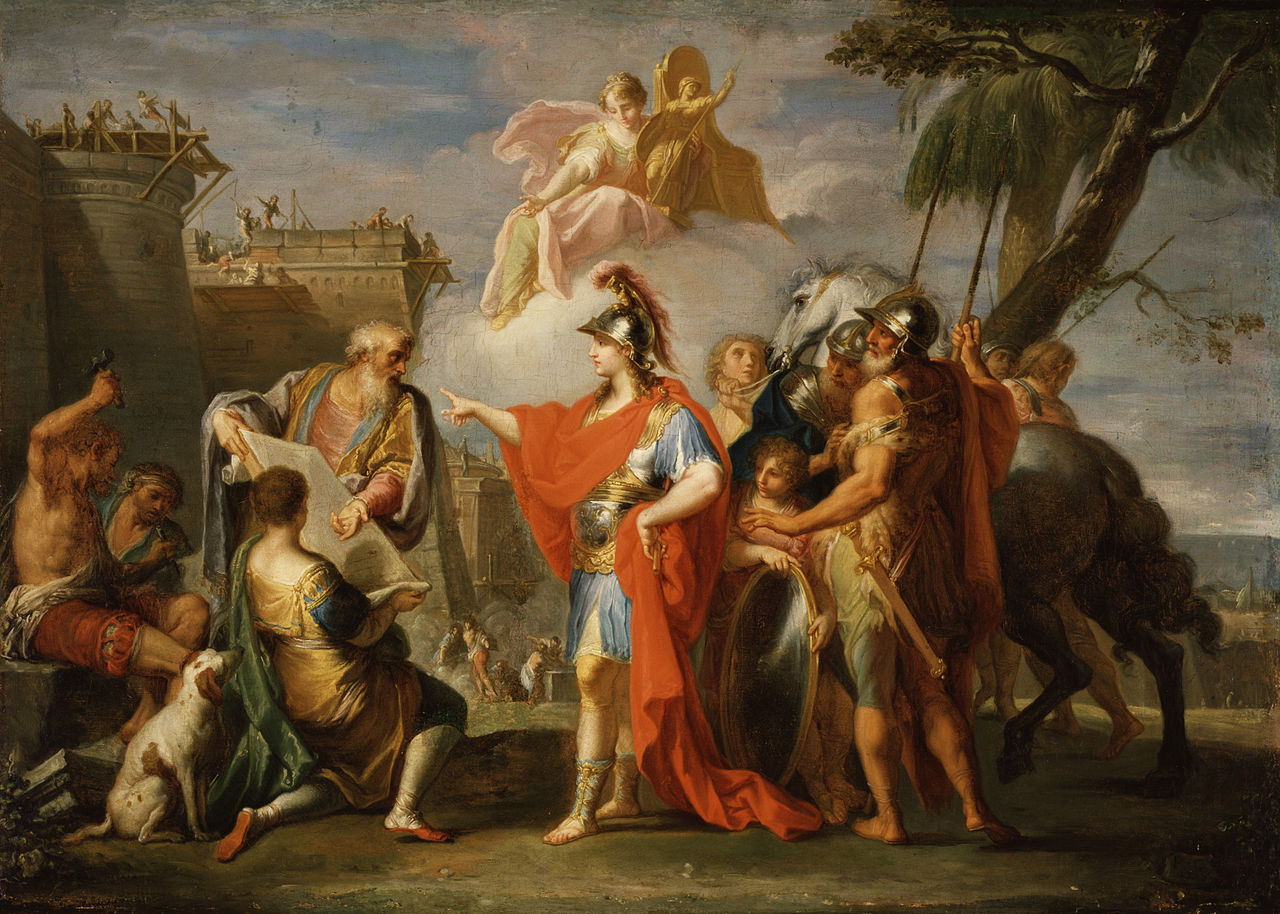Imagine a city with all the knowledge in the world, a wealth of writers, artists, scientists and philosophers debating and pioneering thought. An ancient crossroads of art, literature and architecture. A climactic convergence that would yield a new form of culture, a new form of society.
In the great city of Alexandria, cosmopolitanism was born.
The capital of a growing Ptolemaic dynasty and later of Roman Egypt; Alexandria became an expanding commercial hub linking the Mediterranean, the Nile valley, Arabia, and Asia. Alexandria was also a significant centre of knowledge, with the Great Library attracting renowned academics and scholars. For centuries, the city cultivated a myriad of cultures, religions and trade making it the world’s first cosmopolitan metropolis. Interestingly, evidence of this unique amalgamation of peoples and cultures remains visible until today.
Attesting its historical legacy, beneath this Mediterranean capital lay a series of ancient catacombs (underground cemeteries). The Catacombs of Kom El Shoqafa, dating from Egypt’s Roman Period (30 BC–AD 395), stand today as a stark remnant of the singular cosmopolitan culture once developed in Alexandria. The catacombs are a burial site for Egyptians, Greeks and Romans. It’s walls are embellished with visual, spiritual and artistic elements across these various cultures and traditions. This cultural fusion allows us to better understand the cosmopolitan nature of Alexandrian society in the Middle Ages.
According to Gladys Haddad, a tour guide from Alexandria, this eclectic mixture of cultures and architectural styles makes this a significant archaeological site not only in Alexandria but across Egypt.
Climbing down a 6-meter wide shaft, and descending through a cloud of dust to the lower levels of the catacombs stands the main part of the tomb. The entrance is adorned with two striking columns, reminiscent of a Greek temple, and decorated with distinctive ancient Egyptian motifs.

Maya Jasanoff, a Professor of History at Harvard University, recalls the visual cultural interchanges found at Kom El Shoqafa.
“There are bodies of Roman legionaries, wearing sandals, armoured skirts, and breastplates—but they are topped with the animal heads of the Egyptian gods: jackal, ibis, and hawk. Crowned, knotted serpents, and Apis bulls, figments of the weird pantheon of Ptolemaic Egypt, join Medusa and Horus on the walls. This is a place of fusions and mixtures, survivals and innovations,” reads her 2005 article ‘Cosmopolitan: A Tale of Identity from Ottoman Alexandria’.
These beautifully preserved underground pathways are a visual embodiment of a rich cosmopolitan Alexandrian culture.
However, the multicultural, and multifaceted nature of this ancient city would also come to shape spirituality and religion profoundly. Gods and deities became an important embodiment of cultural diversity, sharing traits from ancient Greece, Rome and Egypt.
Serapis, a Graeco-Egyptian god of the Ptolemaic Period (323-30 BCE) of Egypt, was a blend of the Egyptian gods Osiris and Apis with the Greek god Zeus. A composite deity, whose creation and establishment occurred in Alexandria. The cult of Serapis would resonate immensely with the thriving cosmopolitan city of Alexandria, and spread across the Mediterranean basin.

Richard H. Wilkinson, a leading Egyptologist, believes the establishment of Serapis brought ‘a new age in which Greek and Egyptian religion were brought face to face and the new deity was created to form a bridge between the two cultures’
A tapestry of ancient cultures and traditions, Alexandria has witnessed the wild blossoming of an intricate multicultural, and cosmopolitan society. A society that has overcome difference, embraced change and instigated a revolution of thought. The vestiges of this illustrious past still exist today. In the 20th century, expats from all over the Mediterranean have settled in Alexandria bringing with them a wealth of culture and tradition. A walk down Alexandrian streets and alleyways one is met with an abundance of European influences; from French and Italian architecture to Greek and Cypriot gastronomy.
Throughout the ages, integration, cultural diversity and cosmopolitanism have been ingrained within the urban and social fabrics of this celebrated city.







Comments (5)
[…] ماضي كوزموبوليتاني جوفي في مدينة الإسكندرية […]
[…] ماضي كوزموبوليتاني جوفي في مدينة الإسكندرية […]